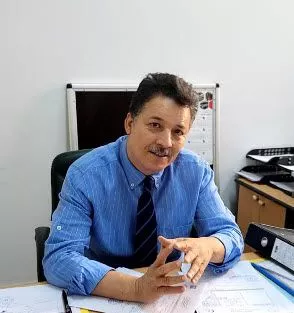
Giamal Abdulrahman Mohamed Mashina
Description
The Department of Mechanical and Industrial Engineering, as it was previously called, was established before 2004M. to create one of the branches of graduate programs within the School of Applied Sciences and Engineering. The department began its activities with the beginning of the spring semester of the same year, where around thirty students were admitted, who were divided into mechanical forces and production sections. And at the beginning of autumn 2008, the division of alternative energy and desalination was added to the division, which was covered by a separate division named after the two divisions (Department of alternative energy and desalination) Create a year 2006M. After the merger of the two departments into one under the name of mechanical and energy engineering, the number of students exceeded three hundred.
Vision
We are eager to become a prominent department locally and internationally in terms of teaching, research and development and a strong relationship with the industry community. We are also developing our curriculum to include modern specializations in engineering and energy.
Message
The department strives to prepare specialized competences and skills in all fields of engineering and various energies using a creative approach, which consists in training the student in the method of scientific thinking and analysis and in acquiring the skill of self-learning, which will help him in the use of technical sciences to solve scientific and practical problems.
Goals
- Strengthening the scientific research base and training experts in the field of engineering and energy.
- To develop scientific research among the students of the department and to educate them to the methods and methods of modern scientific research in the field of engineering and energy.
- Providing knowledge in areas of scientific importance in order to contribute to the service of society and its development and the development of its capabilities.
- Reception of scientific conferences and seminars that can contribute to the development of methods and approaches adopted in all areas of life.
- Preparation of qualified staff for teaching at universities and higher institutes.
- Providing highly qualified competences to the service and manufacturing sector to increase the level of their services to the society.
- Creativity in applying acquired knowledge and creatively solving various problems in the field of engineering and energy.
- Demonstrate professional ethics and assume responsibility towards the environment and society.